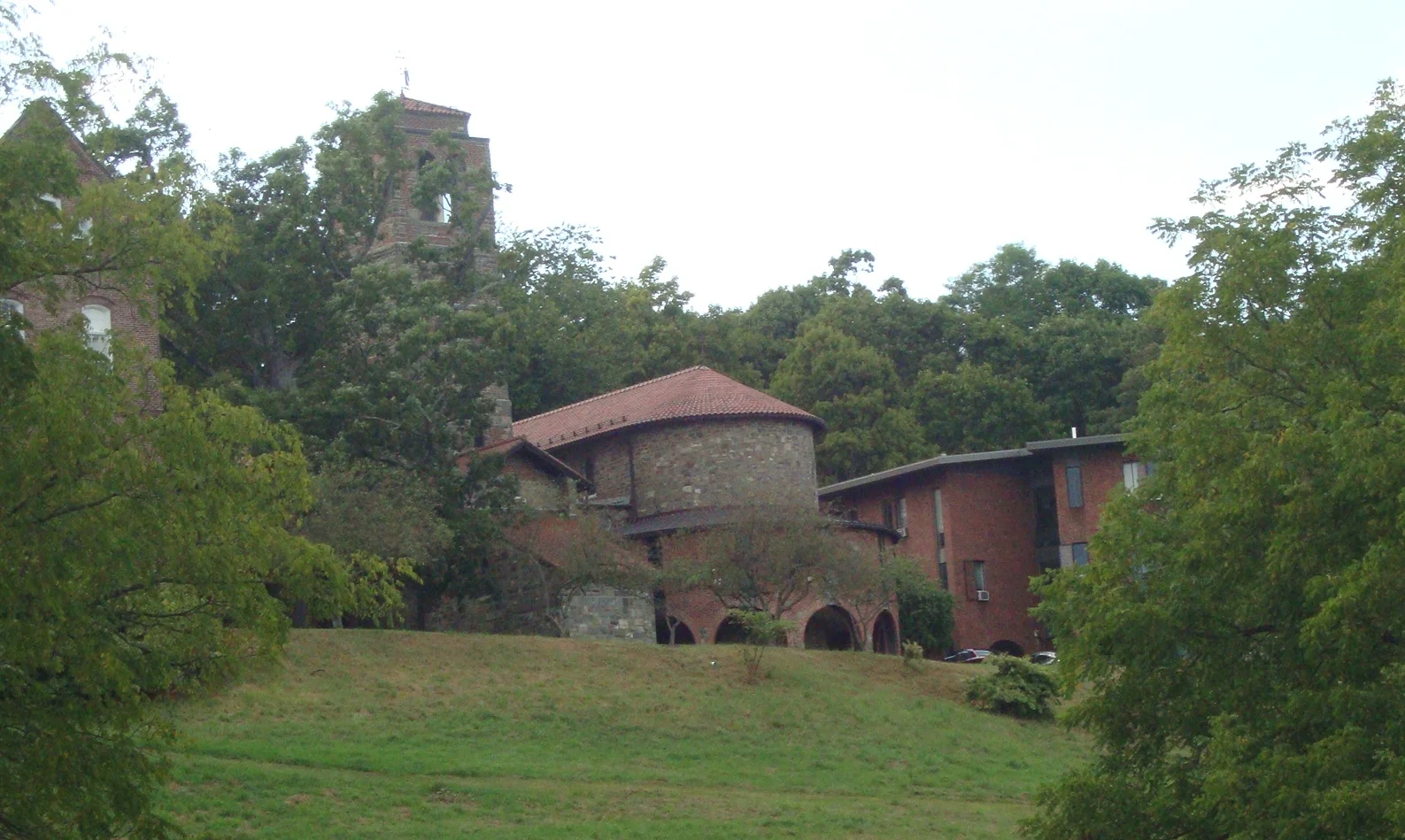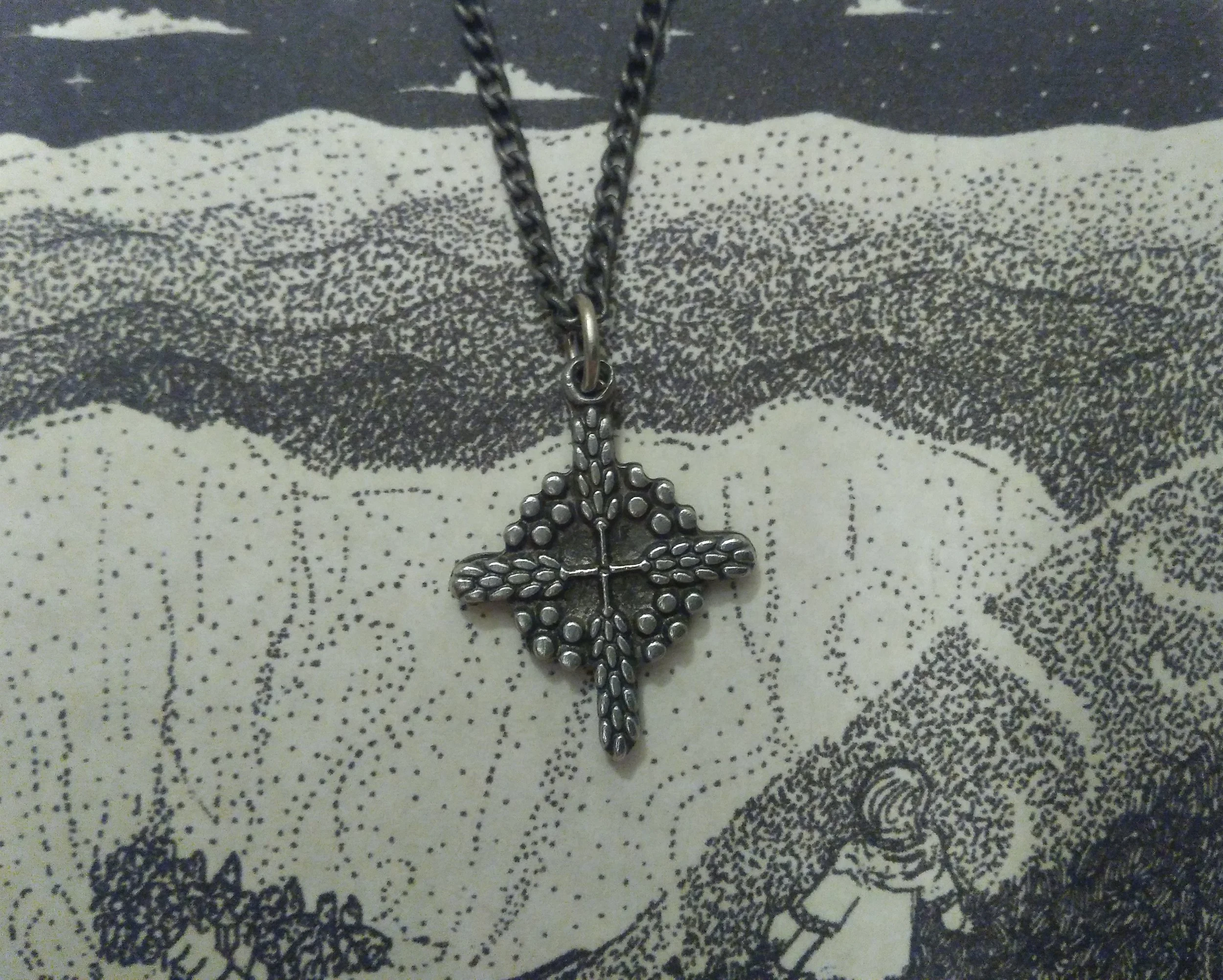At the Heart of the World
This article was originally published in the spring 2015 edition of Mundi Medicina, the newsletter of Holy Cross Monastery.
Why would a young priest and his wife come to live alongside a community of celibate monks at the very start of their married life together? Why would they decide to live on a half-time salary from a nearby parish instead of making big bucks in the city? Isn’t this the time in their life to make lots of money and live “in the world”?
As the priest-half of a couple who seven months ago did just this—started out a married life alongside Holy Cross while serving at St. Gregory’s in Woodstock—I occasionally get questions along these lines. But the truth is, most people who know Holy Cross Monastery typically say something more like “That’s not fair!”
Not surprisingly, there’s a deep longing in folks for the rhythm of prayer, peaceful surroundings, and faithful community that are experienced at Holy Cross. I don’t think that’s because they’re hankering for a fantasy life; rather, I think they’re longing for a fully human life. A rhythm of meaningful work and prayer, the opportunity to connect with nature, time for silence, life in community—these are all things human beings need to truly flourish. We’re hard-wired to want (really, to need) each of these elements, and monastic life is designed to support and balance them.
And so the response that says “That’s not fair,” while light-hearted and good-humored, betrays a belief in our culture that we don’t actually deserve these things: that they’re special privileges for an elite few rather than what we are all truly made for. The cultural status quo says “No” to a life of balance and connection on almost every front: gone, for most of us, are the days of real neighborhood; our work week and work environments don’t typically allow for prayerful pause and pacing; our cityscapes have largely wiped out silence and opportunities to connect with nature.
And so we need to pay attention to what wakes up inside of us when we visit a monastic community. Not necessarily because we have a monastic vocation to discover (although that well may be the case), but because our hearts are trying to tell us something about where we’ve gone wrong as a culture and society. We’ve been led to believe that our fast-paced, disconnected status quo is the “real world”—and that monastics have “left the world.” Usually there’s an edge of negative judgment in this assessment: monastic community is somehow a copout, an escape from “real life” “in the world.”
This we need to see through clearly. Monastic communities, far from having “left the world,” are actually pointing us back to the heart of the world. They are showing us how to be human again. Ask any of the brothers, and they’ll tell you that far from an etheric life floating above the fray, living in community is actually in many ways an intensification of life—you enter more deeply into the world; you don’t run away from it. But you are also given the tools and balance needed that allow that intensification to become an actual path of spiritual transformation—the same possibility that exists in romantic, family, and neighborhood life if we learn to consciously work them that way.
And so, a revolution is needed. And this is where monasteries come in. Rather than places of escape, they are prophetic models of an alternative way of living. Put simply, monastic communities stand as a witness to an authentically Christian life. Not something special, above and beyond the Christian life—but the Christian life itself, plain and simple. Our culture today is set up in ways sharply opposed to Christian life—and this has nothing to do with the erosion of “traditional family values” or a decline in morality. Rather, it’s about a pacing and structure of life in the modern world that doesn’t allow room for Spirit, contemplation, and deep connection.
Today we need monastic communities more than ever. We need to turn to them, and learn from them. Our parish churches show us how to worship on Sundays, and hopefully provide some degree of spiritual nourishment and support throughout the week. But monastic communities show us how once again to sacralize the whole of life. They have kept the deep treasures of the Christian tradition alive, preserving them for a time when we’ll need them most—now.
All around us we hear cries of “The Church is dying!” Religion polls show that the numbers of religious “nones” (not “nuns”!) are on the rise. The mainline churches, by and large, are in decline. But here’s where I diverge from the naysayers—I think this decrease in numbers is actually a hopeful sign. Since the days of Christianity’s linking with Empire in the 4th century, our tradition has been a cultural identity marker. If you belonged to Rome, you belonged to the Church. No longer did you necessarily become a Christian because you longed to walk the radical path of transformation that Jesus embodied.
But today, all of that is changing. Today, we don’t assume Christianity as a blanket identity marker. As Western Christendom goes on crumbling, we’re being given the opportunity to rediscover the fire beneath the rubble, to rediscover the way of Jesus for what it’s always been: a path of transformation that reshapes the whole of life. Monasteries like Holy Cross, which have kept that fire burning for centuries, are stepping forward to show us the way. We need to learn from them, and through that learning help transform our world.
And so, again, why would a young couple start out their life together alongside a monastic community? Because we want to be part of a revolution. We want to stand, with the brothers of Holy Cross, at the heart of the world. We want to relearn the ancient ways of prayer and balanced living. We want to be in authentic community. We want to become truly and fully human—and this seems like a great place to learn how.






